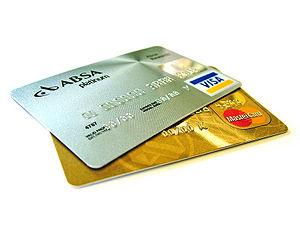
- Image via Wikipedia
Yesterday, Chris Elliott posted an article on his blog which asked the question…Do Frequent Flier Programs Make You Dishonest. We thought we would respond where we felt he did not, and talk about the issue of frequent flier programs in general, which we don’t quite cover as much.
He quotes a letter from David Rubinstein, who works for a nonprofit foundation, who states:
“If I leased office space for my company and the real estate agent gave me $20,000 under the table as a “thank you,†it would be an illegal kickback. If I purchased a dozen computers for my office, and the sales agent gave me a digital camera as a gift, that would be a small, illegal kickback. If I purchased travel services and an airline gave me a portion of a free flight, it would also be a kickback. If we made the best possible purchase decisions, the airlines wouldn’t waste money on offering frequent flyer miles. They do offer them because they know we will make uneconomic decisions for our employers in order to gain personal benefits. Frequent flyer mileage programs result in dishonest behavior.”
Now, we trust Mr. Rubenstein is sincere in his belief, but he is wrong. If a real estate agent gave him money under the table, that would be a kickback. But that is under the table, which is dishonest. His theory is that if we made the best possible decisions, airlines wouldn’t waste money on offering miles, and that making uneconomic decisions for employers will gain us personal benefits.
There are a few holes in that argument. For one, in many companies, the travel planning and the traveler are not the same person. But, let’s assume they are. If there is a significant difference between the prices of Airline A and Airline B, an employee would never be able to get that past his or her accounting people, or superiors. For a company to go along with preferring one carrier over another, there has to be a tangible benefit.
Let’s consider the benefits of frequent flier status…shorter lines, bag fees waived, etc. Does that not benefit the company our nameless employee is working for, as they would be paying the fees? There are also corporate discounts to be negotiated, and so on. But as Chris points out, frequent flier benefits aren’t always truly benefits. We get miles that are harder and more costly to redeem as time passes, we get reward credit cards with higher interest rates. His best advice is: “Don’t get addicted and don’t let it control you.”
The mile system itself is outdated, and becoming more and more meaningless since it was introduced, but is too lucrative for the airlines to get out of. But,as Gadling points out, if you make sure you are fully aware of the rules, and play the system, there are positives.
We think there is a bigger issue with frequent flier programs. Mainly that they make those who are not regular fliers feel less loyalty to any one carrier. Airlines have consistently discovered that their customers are likely to feel carrier-agnostic because they don’t see any difference between Airline A and Airline B. We don’t often enough hear airlines try to give us good and concrete reasons to fly them over their similar competitors on the same route. It is the infrequent fliers who are not exempt from the latest fees and confusions of air travel as airlines focus on lucrative business travelers.
We don’t begrudge an organization catering to its most frequent customers with extra perks. It isn’t dishonest…not by itself. And the benefits shouldn’t be unduly influencing most people, although admittedly they are. We just wish they were trying to compete for the average customer. On most routes, there are similar planes, similar in flight service, similar seat pitch, similar fees…even the frequent flier programs are fairly similar with many competing airlines…in fact, many of them even reciprocate with each other.
There are exceptions, but please…Someone show us the DIFFERENCES.
Related articles by Zemanta
- Christopher Elliott on the reality of frequent flier programs (gadling.com)
- You Are Not George Clooney (punkrockhr.com)
- Confessions of a frequent-flier program skeptic (cnn.com)
